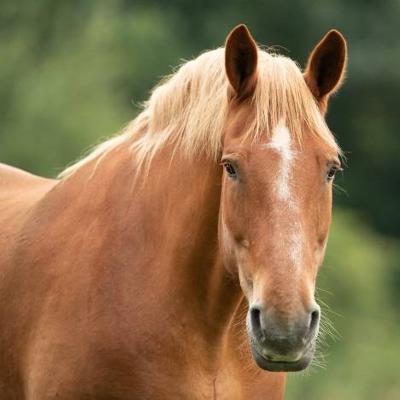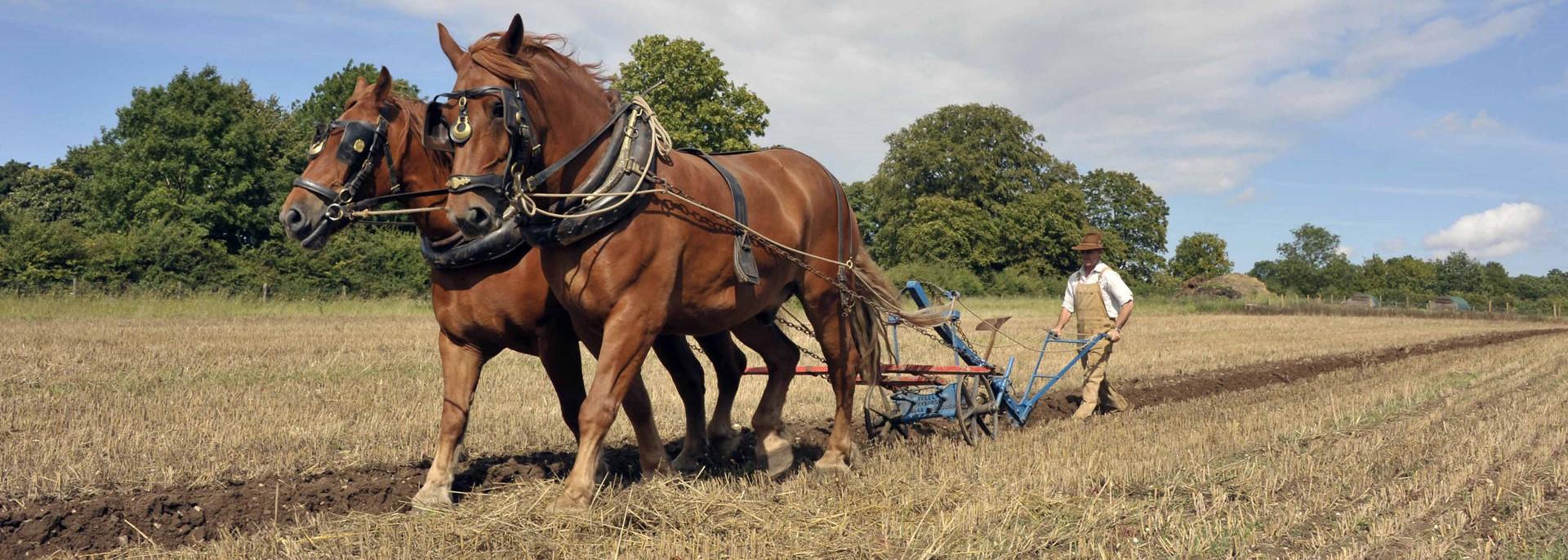Gressenhall Farm

Discover life on a working farm
Gressenhall's farm used to produce food for the inmates at the workhouse. Today, the farm showcases a range of rare breed animals, traditional farming techniques and reveals how farming has changed over time.
Our animal breeds

- Suffolk Punch horses - one of the oldest breeds of working horse recorded in the UK, going back to the 18th century. At Gressenhall, Suffolk Punch horses work the farm. Throughout the seasons they play a central role in ploughing, sowing, and harvesting
- A herd of cattle made up of Red Poll and British White
- A flock of Norfolk Horn sheep
- Large Black pigs
- Norfolk Black turkeys
- Chickens, ducks, and geese
Our crops
Throughout the year we grow a variety of cereal crops which are grazed by our livestock.
Our displays

- St Nicholas' barn - hosts a wide display of farming implements from the last 200 years. Watch the short film entitled 'Harvest Memories' to get a glimpse of farming practices from a bygone era
- Farmhouse - see how farming families used to live. The kitchen has an old-style range cooker and on event days is often filled with the delicious aromas of traditional cooking
- Roots barn - explore the history of Gressenhall Farm with our informative display panels and view our collection of working horse harnesses
- Wildlife walk - Gressenhall is home to a diverse range of flora and fauna. Discover our wonderful river landscape, spot beautiful wildlife, and immerse yourself in stunning wildflowers on our circular farm walk. There's a shortcut too if you have little legs with you
The history of Gressenhall Farm
The land around the workhouse has been used for farming for many years, even before the workhouse was built in 1776.
The guardians of the newly-built House of Industry bought Chapel Farm for the inmates to work on. The farm produced food for the 'inmates' and housed a hospital or isolation ward.
After 1825 the farm was leased out as there were not enough 'able-bodied' inmates to undertake the work, and the farm became known as Union Farm.
There were several tenants, but from 1840 the Pearce family held the tenancy. In 1851 Samuel Pearce was having trouble paying the rent, resulting in 11 acres of land being turned into an industrial farm, where the workhouse boys were trained in agricultural techniques.
In the 1930s Norfolk County Council took over the workhouse, and it became an old people's home when the NHS was formed in 1948. The farm remained tenanted.
Gressenhall Museum of Rural Life was set up in 1975 and in 1979 the Friends of Gressenhall took over the lease to prevent the farm from being sold and separated from the Museum. Ten years later the museum took over the farm, ensuring Norfolk's farming story can be told.

